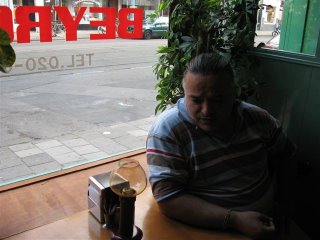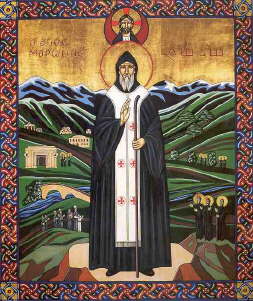9 September
Entrance: euro 10,- combination ticket euro 25,-
In defiance of the war and in solidarity with the humanitarian crisis in Lebanon, De Balie organises an evening of films, documentaries and videos by Lebanese makers, in collaboration with the Lebanese production house and film festival Né à Beyrouth.
The selection of films are testimony to the resistance of Lebanese artists to a historical and cultural amnesia, and show that being rooted in contemporary Lebanon means is as much a commemoration of an untold past, as it is a reflection on and of the present.
With thanks to: Pierre Sarraf (Né à Beyrouth), Joanna Hadjithomas & Khalil Joreige, Celluloid Dreams, Akram Zaatari, and other participating artists.
More info: http://www.neabeyrouth.org/ or http://www.balie.nl/
The program consists of three blocks:
- Block one: 18.00 h
"Ce sera beau, from Beirut with love" Wael Nouredinne, 30min, 2005 (16mm) From Beirut - with Love:. A cinematic postcard greeting, so bitter and cynical, it can only come from a city being at war with itself.
"In this house", Akram Zaatari, 30 min, 2004 (video). At the end of the Lebanese civil war in 1991, Ali, a member of the Lebanese resistance, wrote a letter to the owners of the house his group had occupied for six years. In November 2002, Akram Zaatari took his video camera and headed to this family's village in Ain al-Mir to dig up Ali's letter.
Block two: 20.00 h
"Meshwar" 26 min, Ziad Antar & Marc Casal Liotier 2005 (DV cam). The assassination of former prime minister Rafiq Harari in February 2005, and the instable security situation in Lebanon, has brought back memories of the civil war.
"All is well on the border", 43 min, Akram Zaatari (video). Issues of representation within the occupied zone of South Lebanon are explored in this documentary. The film's three staged interviews with Lebanese prisoners in Israel illustrate aspects of life under occupation with convincing poignancy. Zaatari uses the interview format as a tribute to French filmmaker Jean-Luc Godard's Here And Elsewhere, which probed images of the Palestinian/Israeli conflict in South Lebanon 20 years earlier.
Block three: 22.00 h
"My friend Imad and the Taxi", 19 min, Olga Nakkas/Hassan Zbib, Lebanon (1985 and 2005). In 1985, Hassan Zbib and Olga Nakkas separately started to develop film scenarios based on simple narratives. Their work took Beirut as a stage where lonely characters drifted: a taxi driver in his car, a man walking around and talking to a Rambo poster. These films were never presented as finalized works until a Beirut-based festival, Né à Beyrouth, spotted them and asked the filmmakers to present their films with live electronic music.
"A Perfect Day", 88min, Khalil Joreige en Joanna Hadjithomas, 2005. Stuck in a traffic jam, Malek catches a glance of Zeina, the woman he loves. His mother Claudia has still not accepted his father's disappearance after 15 years. She stays at home should her husband return, Malek drives around the city alone in his car. Each of them living with a void of lost









